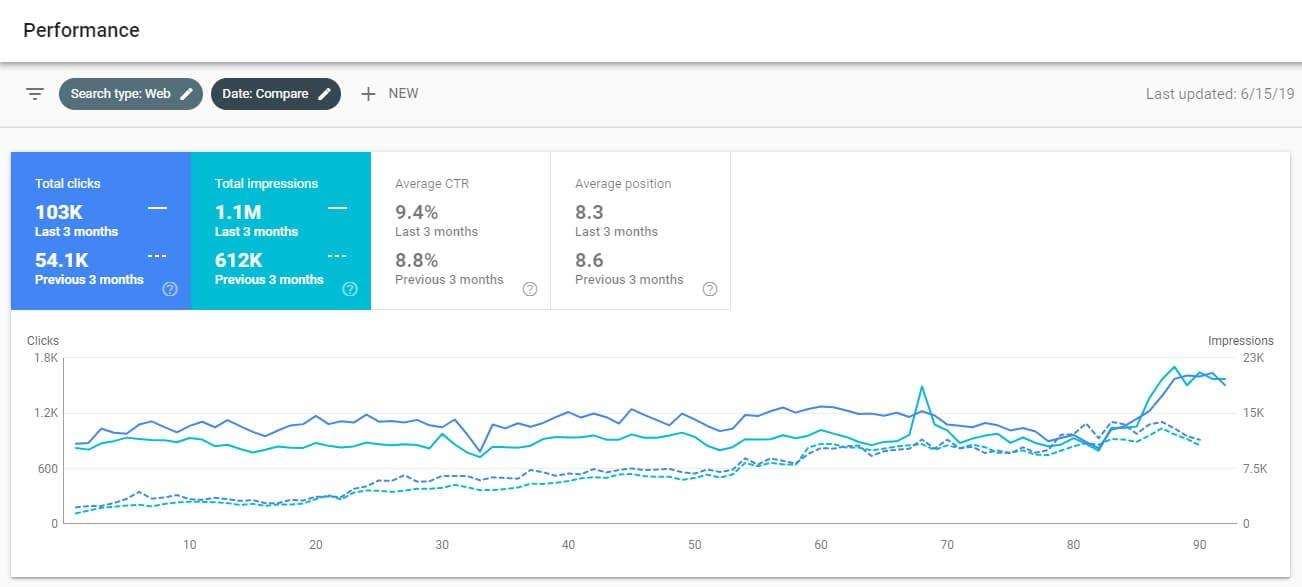In this article, I’m going to share everything that comes to my mind when talking about Question Hub.
My name is Christian Wijaya, and you can call me Chris. I’ve been in blogger world since I was 13, but the serious phase starts at the mid-2018. I’m running several blogs, including this one (Petunjuk.ID) that using Question Hub to find ideas.
Petunjuk.ID is intended to provide decent guides related to everyday technological stuff, like a computer, smartphone, internet, etc. This blog was started in August 2018 while I’m just using Question Hub in late February 2019. So, there is a six months gap of not using Question Hub as the platform for finding ideas.
…although only been my blogging tools companion for about 3-4 months, Question Hub gives a lot of benefits that I never had.
Let’s start with the PROS of Question Hub…
PROS of Question Hub
#1 Fresh and unique post ideas
This is clear.
Question Hub aims to help non-English speaker country to find a solution for their requested question.
…and every person has their own problem.
Most of the time before I knew Question Hub, I’m searching ideas on the other blogs, keyword research tool, or just waiting for them randomly pop up in my mind. At this period, I’m not always having a good post idea, even though I have, it’s a mainstream topic that already flooded the internet.
…and Google hates it.
Thanks to Question Hub, it gives me a lot of ideas that never being covered by any other blogs out there, which means I have unique content that Google loves 😁
#2 Specific topic → less competition
As the question is highly specific, the competition must be less fierce.
I have a hard time dealing with some bigger player for the same topic, even though I created a longer, more complete, and fresher content. However, these are just some of 200+ Google ranking factors. A lot of factors can decide, such as backlinks, website age, recurring visitor, and topic authority — something that small blog like mine didn’t have (yet).
The easiest way to rank on Google is by creating unique and specific content that has fewer competitors.
[alert-success]Question Hub is a great tool for small blogs as we do not have such capability to fight the bigger, well-established player.[/alert-success]
#3 Higher CTR in the search result
I don’t know if this is just a natural stage of blog development or highly affected by Question Hub. But I do believe that posts that published based on questions from Question Hub help increase my search traffic and CTR. The posts also ranked at the top of the search result.
According to Google Search Console, I saw 0,6% of CTR increase in the last three months (when using QH) compared to the previous period (before using QH).

Unfortunately, I did not regularly check the overall blog’s statistic as I’m more focus on creating quality content because I believe, content is king. When I’m putting the visitor as the number one, everything else will follow.
…speaking about visitors, I think the Question Hub creates a better experience for the visitor which I’m going to explain below.
#4 Knowing search intent better
Imagine you found a keyword “best coffee in Jakarta” in keyword research tool. Let’s say Google Keyword Planner.
Most bloggers thought the searcher want to sip a coffee in Jakarta.
But what if the searchers are actually looking coffee to resell?
They might be using “the best coffee in Jakarta” keyword because they want to open a new shop in Jakarta and having nearby supplier would be economical.
Question Hub can solve search disambiguation problem by giving searchers advantages to specifying their intention. That way, I as a blogger can provide more accurate content and satisfy visitor even further, not just guessing their expectation.
…and that brings us to the final point…
#5 Definitely Keyword Planner killer

I know, this may sound exaggerated, but look…
Google Keyword Planner has been around in the blogger community for years. Every blogger that wanted to find ideas came to Keyword Planner, then create the same content which already published by other blogs.
I still remember on the Google for Publisher event in Jakarta, February 19, 2019, one of Google insiders, (if I’m not wrong his name is) Christopher, endorse Keyword Planner as the tools for finding ideas. This is good, but not great for newcomer blogs.
In other words, Google only has one weapon (aside from Google Trends) to help content creator finding ideas.
Question Hub may not necessarily kill Keyword Planner, but I’m pretty much confident there will be a fraction of bloggers opted out from Keyword Planner and start using Question Hub instead.
[alert-success]Question Hub is for creating daily content, Keyword Planner fits for cornerstone content.[/alert-success]
If that was the best part, here are some CONS of Question Hub.
NOTE: I’m not talking about the technical issue but rather my personal experience.
CONS of Question Hub
#1 Big effort, less reward
I don’t know what the main mission of Question Hub was the primary mission of Question Hub, but per my guess, I think one of many Question Hub missions is to help Google Search Engine user gets solution for him or her problem. In this manner, there will be less chance to switch to another search engine service.
To be fair, I’m delighted to get a new topic to cover.
However, some topics are extremely specific that could be only one or two people in this galaxy ever encountered with the same issue.

Considering a lot of hours and effort to make the content, then only got small visits from search engine sounds unfair for me. Especially for blogs that rely on Google Adsense revenue in which the number of ad impressions surely matters.
In some occasions, I know the answer, and I can help them but decide to skip because it’s “not worth”. Also, several questions are actually “YES or NO question” which if I create content for them will look so thin and not much value I can give.
#2 One-way communication
Imagine you were a spy in the mid-1800 sent by your commander to the enemy territory on a mission to gather information. Fast forward, you successfully obtained tons of valuable information that could help your team win the war and reduce the potential casualties. Unfortunately, the enemy realized their secrets had stolen. They were tightening the border to prevent people from entering or leaving the country.
If you didn’t back to your commander in six days, he instead will pick you up in the predetermined point. Too bad, he unable to enter the enemy’s line either. The only thing allowed to enter is a letter, so your commander start writing a letter contains special guidance to get out from there in one piece. It was a perfect escape plan to save yourself and bring the necessary documents.
Meanwhile, you didn’t know if your commander has sent you a life-saving letter. When the letter arrived, you’re no longer in your base but sneaking upon borderline and hoping didn’t get caught. Sadly, you didn’t make it. The information has taken back, and you are going to be a prisoner.
On the other side, your commander didn’t get the information you supposedly deliver. Your country had lost in the war, and dozens of soldiers died. All because you did not receive the letter from your commander.
***
The situation is similar for the questioners and me in Question Hub.
The questioners (spy) is struggling to back to home and needed help. Me (commanders) tried to help my men escape from the enemy’s country, but he never realizes being helped and seek an alternative instead – which probably not the best solution to bet.

Sometimes after I published my content, I’m really hoping the questioner asking the question again and got me on the first page.
But, what the odds?
If someone in an urgent situation asking for help but didn’t get the answer, they may end up with an alternative way instead of trying to ask the same question again in a different time.
Perhaps Question Hub will let questioners use their email to receive the answer, but without allowing the content creator knows their identity.
Conclusion
Question Hub is clearly a useful tool for small bloggers that cannot bid on the high-competition keyword. The number of search volume may not so big to drive a great range of revenue, but at least, it keeps me busy creating content. This particular topic also helps Google recognize my blog because of a better search ranking and increase my blog’s authority. From there, I can try to pick a more competitive keyword.
At this point, Question Hub is only for finding ideas. There’s no exclusive benefit of answering questions in here. Although Google did not promise anything regarded to SERP ranking, there is a decent chance of reaching the first page easily.
If Question Hub one day has a rewarding system, I hope it will be a money credit or honor that could benefit the blog’s growth. Perhaps a badge for the most helpful blogs, authority boost, or some other thing I can’t imagine.
Question Hub is amazing tool prevents bloggers from running out of ideas. Despite having plenty of holes to fix, its key foundation was brilliant, and I believe it will not end up like Google Plus (or Google Answers).
From the scale from 1 to 10 about how useful Question Hub, I would score 11.
